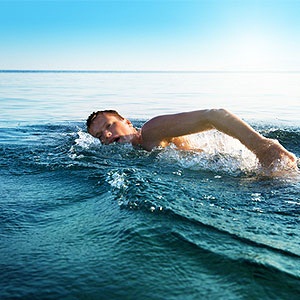
The World Health Organisation’s first Global Report on Drowning reveals that drowning claims the lives of 372 000 people each year and is among the ten leading causes of death for children and young people in every region.
Read: Stop your kids from drowning
Other stark findings from the report include:
o Globally, over half of all drowning deaths are among those aged under 25 years.
o The highest rates for drowning are among children under five years of age.
o Males are two times more likely to drown than females.
o More than 90% of drowning occurs in low- and middle-income countries, with the highest rates in the African, South-East Asia and Western Pacific regions.
The report calls for a substantial scaling-up of efforts and resources to prevent drowning and outlines several actions to be taken by both national policy-makers and local communities, all of which could save many young lives.
Hidden childhood killers
“Efforts to reduce child mortality have brought remarkable gains in recent decades, but they have also revealed otherwise hidden childhood killers,” says WHO Director-General Dr Margaret Chan.
“Drowning is one. This is a needless loss of life. Action must be taken by national and local governments to put in place the simple preventive measures articulated by the WHO.”
Strategies for local communities include: installing barriers to control access to water; providing safe places such as day care centres for children; teaching children basic swimming skills and training bystanders in safe rescue and resuscitation.
At national level, interventions include: adoption of improved boating, shipping and ferry regulations; better flood risk management and comprehensive water safety policies.
Drowning deaths considerably underestimated
Alarmingly, according to a number of studies from high-income countries, deaths due to drowning may be considerably underestimated. Official data do not include drowning from suicide, homicide, flood disasters or incidents such as ferry capsizes.
"I believe that you can’t manage what you don’t measure – and there’s never been a comprehensive effort to measure drowning around the world until now,” says Michael R Bloomberg, three term Mayor of New York City and founder of Bloomberg Philanthropies, which funded the report.
Read: Be safe in the water
“The more evidence we can gather, the better we’ll be able to tailor our prevention efforts – and the Global Report on Drowning is a big step in the right direction.”
“Almost all water presents a drowning risk, particularly inside and around our homes” says Dr Etienne Krug, WHO Director for the Department for Management of Noncommunicable Diseases, Disability, Violence and Injury Prevention.
Infographic: The WHO's global report on drowning

Drowning occurs as people go about their daily lives
“Drowning occurs in bathtubs, buckets, ponds, rivers, ditches and pools, as people go about their daily lives. Losing hundreds of thousands of lives this way is unacceptable, given what we know about prevention.”
The report describes drowning prevention projects in a number of low- and middle-income countries, including those where rates of drowning are high, for example, in Bangladesh, Cambodia, China, India, Philippines, Thailand and Vietnam.
The report recommends that such efforts should be systematically implemented and monitored in order to identify best practices and bring those which are most successful to scale.
The report also draws attention to the need to make drowning prevention an integral part of a number of current debates, such as climate change which leads to increased flooding; mass migrations, including of asylum seekers travelling by boat; and issues such as rural development and water and sanitation.
Read: African American kids more likely to drown
Improving coordination across these various agendas will save lives.
Read More:
Safety tips for fire and water
Marine life drowning in sea of trash
Drug-resistant TB remains a crisis




 Publications
Publications
 Partners
Partners














